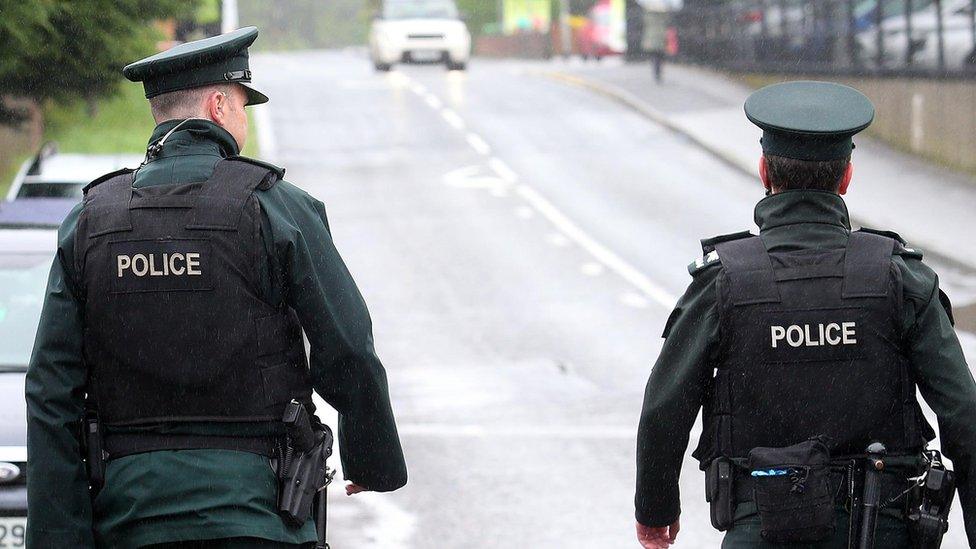Holiday pay case could affect 'every worker' in NI
- Published
- comments

Any employee who works overtime - in the public or private sector - could be entitled to backdated holiday pay, a trade union has said.
The Court of Appeal ruled this week that Police Service of Northern Ireland (PSNI) staff were owed money for a shortfall in pay going back 20 years.
Individual payments could be an average of £10,000, totalling about £40m.
Trade union NIPSA said the ruling could go beyond the public sector and affect private sector employees as well.
There are about 208,000 public sector employees in Northern Ireland, the latest official figures show.
Antoinette McMillen, the assistant secretary of NIPSA, said: "NIPSA represents workers across Northern Ireland - in education services, in health services, in local government, in non-departmental public bodies and the voluntary sector.
"This case affects all those workers and not just those in the public sector. This case represents every worker in Northern Ireland.
"If you're someone who does overtime or you get allowances, you potentially could have a claim if your employer does not pay you when you go holidays."

Antoinette McMillen said this case represents "every worker in Northern Ireland"
Stormont's Department of Finance told the BBC's the Nolan Show it was "in early discussions" with unions in the wake of the case.
The Northern Ireland Fire and Rescue Service told the Nolan Show it was "actively considering the issue of overtime and holiday pay".

The Court of Appeal ruled PSNI officers were owed money for a shortfall in pay going back 20 years
Northern Ireland Water, the publicly-owned water and sewerage services company, said holiday pay "has been the subject of substantive discussions" between it and trade unions.
It added it was "taking time to understand" the Court of Appeal decision and the "potential implications for NI Water and its employees".
The public transport provider Translink said it was also reviewing the ruling in the PSNI case.

Analysis: John Campbell, BBC News NI economics editor
The court ruled that miscalculations arose because holiday pay had been based on basic working hours, not the actual hours worked, including overtime.
As a result, the PSNI is facing an estimated bill of £40m to settle the claim.
But the implications could be much wider than that.
It could be a significant sum for Stormont budgets, which are under pressure.

Solicitor John McShane, who represented officers and civilian workers in the PSNI case, said the law had been clear since a case taken in 2014.
He said the PSNI case was more focused on how far the back pay ruling extended.
Mr McShane said the government introduced legislation for England and Wales in 2014 capping the back pay limit to two years but no equivalent legislation was brought in for Northern Ireland.
He added that the issue "goes to a fundamental situation of protecting workers".
Supreme Court
An employment lawyer at Pinsent Masons said the case confirmed Northern Ireland's divergence from the GB position on the potential liability for holiday pay claims.
Craig Patterson said it is possible Supreme Court judges could approve the NI Court of Appeal decision, in which case employers in Great Britain could also "be exposed to significantly larger claims".
SDLP leader Colum Eastwood described the ruling as "significant" and said he had asked to meet David Sterling, the head of the Northern Ireland Civil Service, to discuss its effect on budgets.
"This matter must be dealt with in a way that meets the needs of public sector workers, respects the ruling of the court and protects budgetary integrity so that public services are not impacted," he added.
- Published5 November 2018

- Published17 June 2019

- Published18 June 2019
